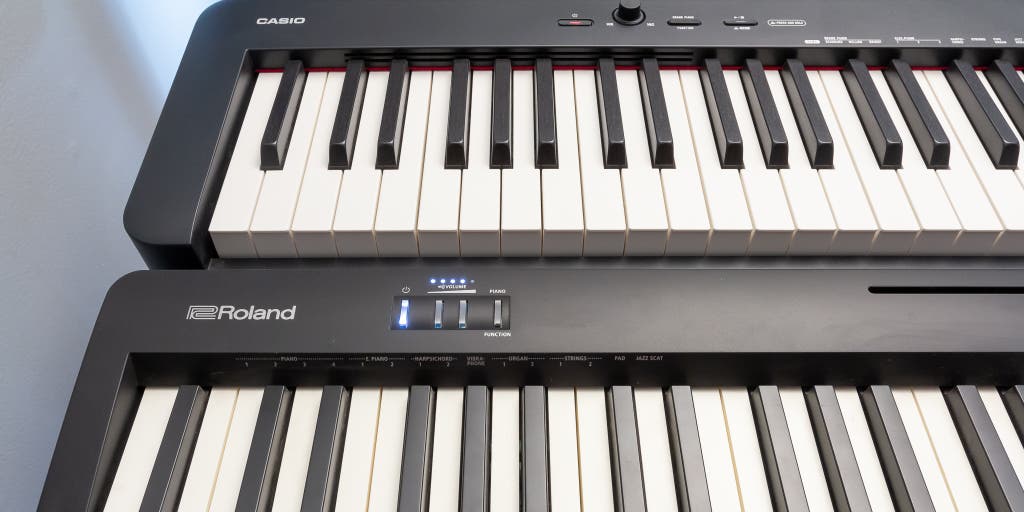1. Introduction
The piano is one of the most beloved musical instruments in the world, and its history dates back centuries. Today, pianists have a choice between acoustic and digital pianos, each with their own unique benefits and drawbacks. In this article, we will discuss the differences between acoustic and digital pianos and help you decide which one is right for you.
2. History of Piano
The piano has been around since the 1700s when it was first developed by Bartolomeo Cristofori in Italy. Since then, the piano has become an integral part of classical music and remains a popular instrument to this day. Over the years, there have been many advancements in technology that have allowed for different types of pianos to be created such as acoustic and digital pianos.
3. Acoustic Piano
An acoustic piano is a traditional type of piano that uses mechanical action to create sound when keys are pressed down on it. It typically consists of strings that are struck by hammers when the keys are pressed down, creating a beautiful sound that resonates throughout a room or hall. Acoustic pianos come in various sizes such as grand or upright models and can be made from different materials such as wood or metal.
4. Digital Piano
A digital piano is a modern type of piano which uses electronic components to produce sound when keys are pressed down on it. Instead of strings being struck by hammers like an acoustic piano, digital pianos use samples recorded from real acoustic pianos or synthesized sounds to create realistic sounding notes when played through speakers or headphones. Digital pianos can also come with additional features such as MIDI capabilities and built-in accompaniment tracks for added versatility during performances or practice sessions.
5. Benefits of an Acoustic Piano
Acoustic pianos offer some unique benefits compared to their digital counterparts:
• Authentic sound – An acoustic piano produces an authentic sound that cannot be replicated by a digital instrument due to its mechanical action which creates vibrations throughout the body of the instrument itself;
• Touch sensitivity – An acoustic piano allows for more dynamic playing due to its touch sensitivity; players can adjust their playing style depending on how hard they press down on each key;
• Durability – An acoustic piano is designed to last for many years if maintained properly; unlike digital instruments which may need replacing after a few years due to technological advances;
6. Benefits of a Digital Piano
Digital pianos offer some unique benefits compared to their acoustic counterparts:
• Variety – Digital pianos come with a variety of sounds built-in ranging from grand concert halls to jazz clubs; they also offer features such as MIDI capabilities which allow users to play along with backing tracks or record their own compositions; • Portability – Digital pianos are much smaller than traditional acoustic models making them ideal for those who want to practice on-the-go or perform in small venues where space is limited; • Cost– Digital models tend to be cheaper than traditional ones due to their smaller size and lack of mechanical components; they also require less maintenance over time which makes them more cost effective in the long run;
7. Cost and Maintenance Considerations for an Acoustic or Digital Piano
Acoustic Pianos: Traditional acoustic models tend to cost more upfront than digital ones but may require less maintenance over time depending on how often it is used and how well it is cared for (regular tuning, cleaning etc). The cost associated with maintaining an acoustic model can add up over time so it’s important to factor this into your decision making process if you plan on buying one long term.Digital Pianos: Digital models tend to be cheaper upfront than traditional ones but may require more maintenance over time depending on how often it is used (replacing batteries, software updates etc). The cost associated with maintaining a digital model can add up over time so it’s important factor this into your decision making process if you plan on buying one long term.
8 Conclusion: Which One Is Right For Me?
Ultimately, choosing between an acoustic or digital piano comes down personal preference and budget constraints as both types have their own unique benefits and drawbacks that should be taken into consideration before making any purchase decisions.If you’re looking for an authentic sounding instrument that has great touch sensitivity then an acoustic model might be right for you whereas if you’re looking for something more versatile with additional features then a digital model might be better suited.Ultimately though,only you can decide what type of instrument best suits your needs so make sure do plenty research before committing yourself financially.
9 Resources
• https://en.wikipedia.org/wiki/Piano • https://www.pianoworld.com/difference-between-acoustic-and-digital-pianos/ • https://www.soundonsoundmagazine/com/how-to/buying-guide-acoustic-and-digital-pianos

